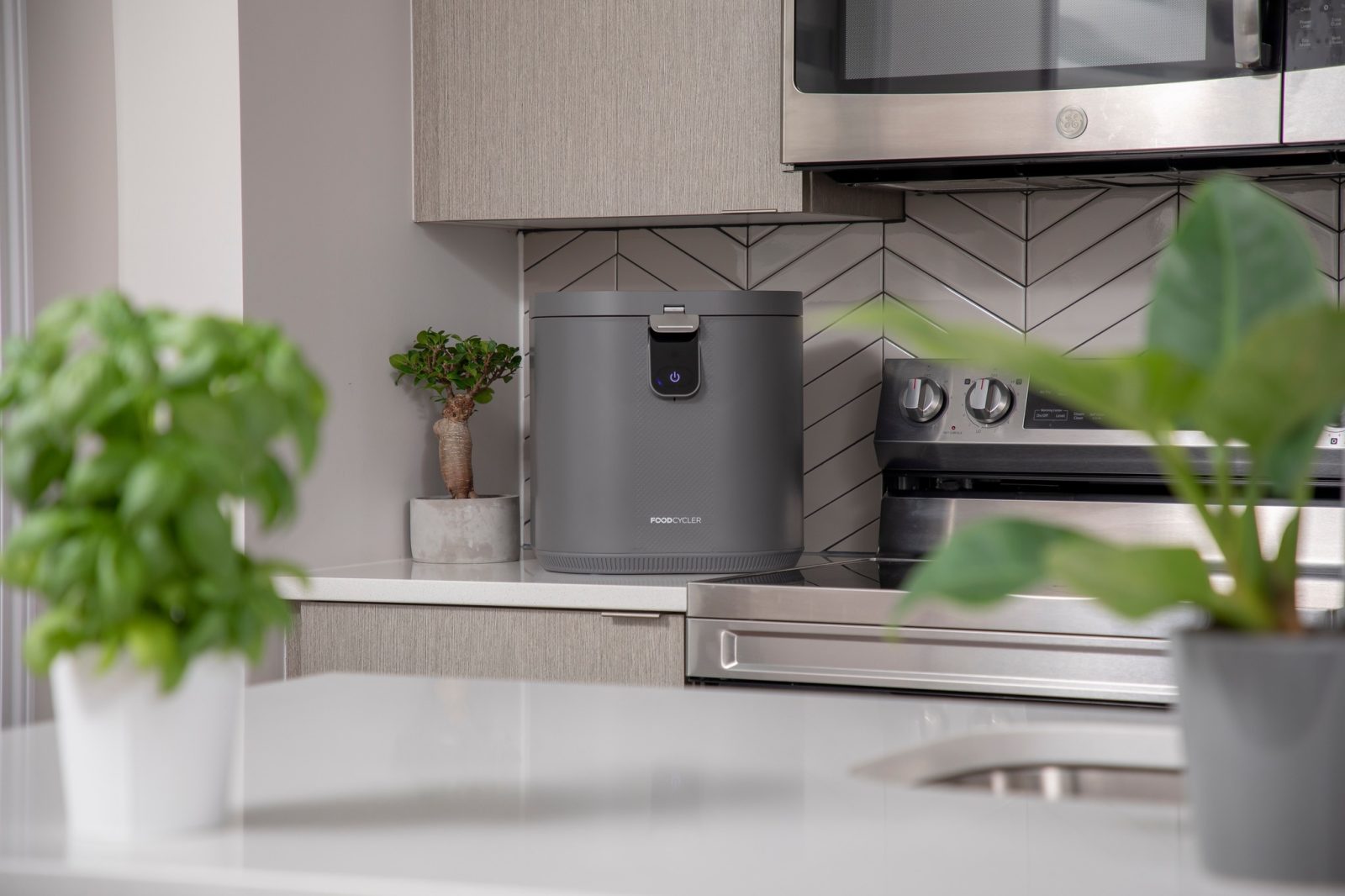Clarence-Rockland is investing more than $54,000 to implement a green waste pilot program that uses a countertop composter, an alternative to the green bin programs employed by other municipalities.
Presented to council by FoodCycle Science, the Ottawa-based company that makes a countertop composter, the pilot program proposes to engage 500 households in Clarence-Rockland to use the FoodCycler for a period of 12 weeks, followed by an evaluation to determine whether the municipality wishes to make the program available to all residents.
As part of Ontario’s Food and Organic Waste Policy, municipalities are required to “provide for the resource recovery of food and organic waste through means such as home composting, community composting and local event days”.
The countertop device, resembling a high-tech electric garbage can, holds between 2.5 to 5 litres of organic waste (depending on the model). Organics in the device are ground up and dehydrated, converting the waste to between 100 and 200 grams of “dry, sterile, odourless and nutrient-rich » powder in under eight hours. According to the company, this process uses less than 1.5 kilowatt hours of electricity (around $0.10 to $0.15) per cycle, equivalent to charging a laptop for the same amount of time. Converted waste can then be added to a garden, composter or used as organic material elsewhere.
Residents interested in participating in the program would be required to front some of the cost of the machine. At retail, the FoodCycler costs $500 and $800 for the 2.5-litre and five-litre versions, respectively. However, as part of its pilot program, FoodCycler offers up to $250 in discounts for each machine, in addition to $150 in federal subsidy through Impact Canada. FoodCycler suggests the municipality also provide up to $100 in subsidies for residents interested in participating in the pilot program, making the final cost to pilot program participants between $150 and $300. Participants get to keep the machine at the end of the pilot.
Council approved a $54,200 investment in the pilot program, to be drawn from the waste management reserve fund, to subsidize the cost of 500 machines for participating households.
Food waste a major issue
According to the FoodCycler presentation, some 63 per cent of food waste is avoidable, with 25 to 50 per cent of household waste composed of organics that could be composted instead of being diverted to landfills.
While the City of Clarence-Rockland is not able to measure the amount of food waste heading to its landfill, operations director Jean-Luc Jubinville told council it remains an ongoing issue.
“Studies show that we could evaluate 30 per cent or more of our garbage is organic and could be redirected elsewhere,” Jubinville told council. “It’s a definitely a problem the city is looking to address.”
Mayor Mario Zanth added that finding alternative solutions to the municipality’s waste management is imperative as landfill space remains limited, and approvals for new or expanded landfills are not easy to obtain.
“We don’t have a choice,” he said. “The provincial government isn’t letting people create more dumps and we have to make ours last a very long time.”
For Zanth, a green bin program is not as attractive an option, in terms of both cost and cleanliness.
“The cost and environmental impact of running a truck all over the city just to pick up at maybe one in ten houses that may want to participate.”
As experienced by other municipalities using the green bins, Zanth suggested the smell, attraction of raccoons and other animals is often a deterrent to participation.
“This is a great way of doing [composting] in a clean way.”
Food waste sent to landfills also produces high levels of methane, a powerful greenhouse gas more harmful than carbon dioxide.
A well-established program
FoodCycler has partnerships with more than 70 municipalities across eight provinces and territories. Of more than 4500 households who completed pilots, FoodCyclers claims 98 per cent of participants “will continue using the FoodCycler after the pilot”, and 96 per cent would recommend it to others.
The company estimates each participating household, consisting of three to four people, diverts approximately 300 kilograms of food waste away from the landfill each year.
Though some of the subsidies only apply to the pilot program, should Clarence-Rockland adopt a municipality-wide program, other green subsidies could be available through the federal and provincial governments. Regardless, Zanth believes the total cost of such a program would still be cheaper than operating a green bin program.
East Hawkesbury, South Glengarry and South Stormont all have opted in to a FoodCycler pilot program.



